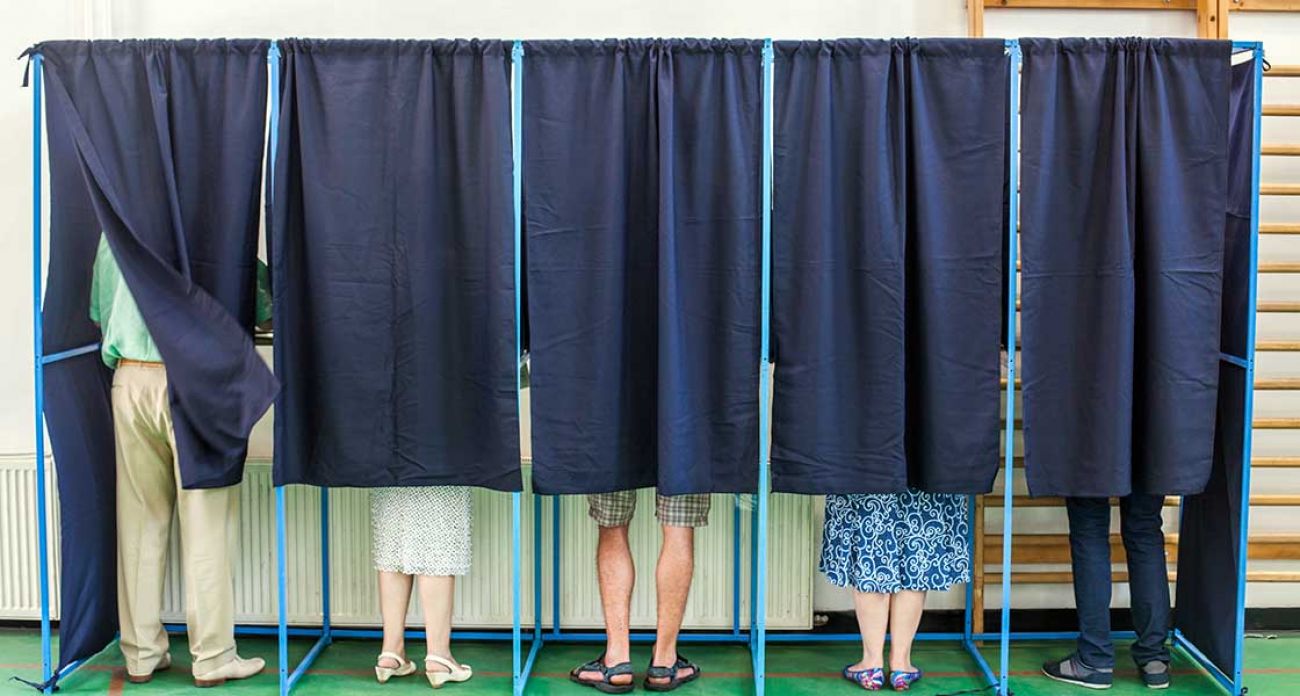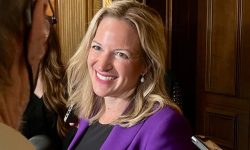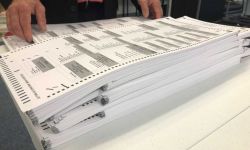Michigan has no law against guns at polls, but Dana Nessel may clarify rules

President Donald Trump is calling upon his supporters to show up to the polls to watch for fraud, prompting fears of voter intimidation and violence on Election Day.
In Michigan, that’s made more pressing by the president’s debate urging for the far-right Proud Boys to “stand back and stand by” and by recent charges against militia members for an alleged plot to kidnap the governor.
Eleven states ban firearms at polling places, but Michigan is not one of them, according to the National Association of State Legislatures.
So does that mean it’s OK to carry guns at polls? It’s complicated, and depends whether guns are concealed and the location of polling places:
- Openly carrying guns within 100 feet of polling places isn’t allowed, said Bob Stevenson, executive director of the Michigan Association of Chiefs of Police.
- Concealed guns are allowed at polls, though, except schools, churches and other “weapon-free zones” where they are explicitly prohibited.
Michigan is an open carry state, which means it’s typically legal to carry guns in plain sight. And since the state relaxed concealed weapons applications in 2001, about 6 percent of the population, more than 616,000 residents, have concealed carry permits.
Stevenson’s group is working with the attorney general’s office to clarify rules about guns on Election Day, but it’s an issue that’s caused confusion in the past.
In 2016, Republican Secretary of State Ruth Johnson’s office said normal carrying rules apply at polling places, which would mean guns are barred from schools and churches unless the person has a concealed carry license.
At the time, many local law enforcement agencies agreed.
Marian Sheridan, an organizer with the Michigan Conservative Coalition who is recruiting and training people to be poll watchers and challengers in the November election, said she rarely gets asked by volunteers if they’re allowed to bring a gun.
When they do, she said she tells them “this is not the place to be carrying.”
Michigan Attorney General Dana Nessel and Secretary of State Jocelyn Benson, both Democrats, have said they plan to issue guidance soon for law enforcement on how to handle guns at polling places.
The offices are reviewing the law “in order to ensure that we have guidance that balances voters rights to vote without any feeling of intimidation and also gun owners’ rights and their Second Amendment right to bear arms,” Department of State spokesperson Jake Rollow said Tuesday afternoon.
The goal, he said, is for law enforcement to be clear on what is and isn’t illegal so they can respond appropriately on Election Day.
“At this time I’m not aware of any specific threat” but the offices are coordinating with the Michigan State Police and federal law enforcement to keep tabs on any potential issues, Rollow said.
Poll watchers, who don’t have to be appointed by a political party or group, must stay in the public areas of polling places and aren’t allowed to approach or talk to voters. State election law also protects against voter intimidation, though it’s unclear how that is defined.
Stevenson said “that’s going to be based on the overall circumstances of what the person is doing.”
A large group of people carrying shotguns in the parking lot of a polling place is likely to qualify as intimidation, while one person standing quietly to the side would probably not, he said.
John Pirich, an attorney and Michigan elections expert, said “there are strict standards about poll watchers and I assume that those standards will be enforced and you’re not going to have 30 people standing there trying to intimidate people.”
“Why anyone would want to bring a gun to a polling place is beyond me,” he said.
Related stories:
- Crush of poll watchers expected at Michigan election raises intimidation fears
- Detroit’s August election woes have many worried about November
- Michigan passes absentee ballot voting test. November could be another story.
Michigan law also prohibits people from posting “any material that directly or indirectly makes reference to an election, a candidate, or a ballot question” or approaching voters to encourage them to vote for or against a candidate within 100 feet of the entrance to a building where there’s a polling place.
Nessel said last week that the president’s comments at the presidential debate late last month were “dangerous and reckless” and she’s worried they’ll spur on voter intimidation.
She said Michigan has “pretty liberal open carry laws” but that her office is working to “first and foremost” protect the right to vote without harassment.
“It is a legal right to be a poll watcher, but you cannot use those positions to try and interfere with a person’s right to vote,” she said. “We have to draw the line between what a person can do operating as a legal observer versus what is being done to harass people.”
See what new members are saying about why they donated to Bridge Michigan:
- “In order for this information to be accurate and unbiased it must be underwritten by its readers, not by special interests.” - Larry S.
- “Not many other media sources report on the topics Bridge does.” - Susan B.
- “Your journalism is outstanding and rare these days.” - Mark S.
If you want to ensure the future of nonpartisan, nonprofit Michigan journalism, please become a member today. You, too, will be asked why you donated and maybe we'll feature your quote next time!




